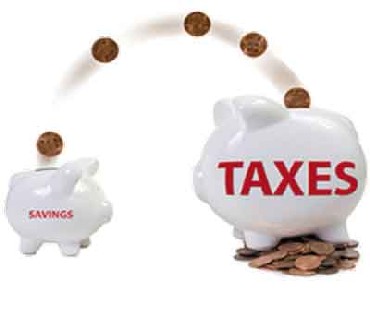
PPF fits all portfolios, except those earning basic pay of over Rs 8.3 lakh yearly.
It is that time of the year when your employer will ask for your investment declarations. Most salaried persons will want to invest in tax saving instruments.
Among instruments you cannot do without, is Public Provident Fund (PPF) which offers tax-free eight per cent annual returns with no risk, making it a good fit in most portfolios.
However, a person can invest maximum of Rs 70,000 each year in PPF.
...

For people in higher income brackets (basic salary of over Rs 8.3 lakh), the employee provident fund (EPF) itself covers the permissible limit of savings, thus investment in other instruments is not necessary.
Other than EPF and PPF, a person needs to look at risk-return parameters of each product that helps him or her save tax.
...

Section 80C
Equity Linked Savings Scheme (ELSS)
This product can help people in all tax brackets to save taxes while giving inflation-adjusted returns. The investor does not need to pay any tax on withdrawal too.
ELSS has a lock-in period of three years, the shortest among all tax-saving instruments.
Unit-linked insurance plans (Ulips)
These products too can provide inflation-adjusted returns and opportunity to create wealth in the long term, as they invest in equities and debt papers.
However, you need to keep investing regularly and wait until the maturity, as high upfront charges eat into returns of the older products (issued before Sept. 1, 2010).
Even after the recent regulatory changes in Ulips, they are still expensive investment vehicle compared to mutual funds.
...

Other insurance plans
Covering risks is essential for your goals. Buy insurance for actual requirement rather than for saving taxes.
That's why opt for a term plan, as oppose to endowment and money back, as the former offers highest risk cover for low premiums.
The premiums paid are eligible for deduction under Section 80C.
New Pension Scheme (NPS)
This is the most recent entrant to the Section 80C instruments. It can be a good option for retirement planning with tax savings. The drawback is that the amount is taxable on withdrawal on maturity.
...

Pension Plans
Contribution in pension plans is allowed as deduction under Section 80CCC. Pension plans can be traditional or unit-linked, or from mutual fund houses.
Other products that are covered under Section 80C are national savings certificate, senior citizen savings scheme, 5-year fixed deposits, including accrued interest, tuition fee for two children for full time courses, home loan principal repayment.
The combined limit of deductions under Section 80C, 80CCC and 80CCD is Rs 1 lakh.
...

Other Instruments
Interest on home loans
Interest on home loan is deductible up to Rs 1.5 lakh each year for loans taken after April 1, 1999 under Section 24(i)(vi). If it is a joint loan, both the people can avail of this deduction simultaneously depending on their contribution.
Infrastructure Bonds
By investing in these bonds you can avail additional deduction of Rs 20,000 from your income under section 80CCF. The interest earned on these is taxable, which will eat into your returns.
...

Health Insurance
The premiums paid for health insurance of self, spouse and dependent children are deductible from your income up to Rs 15,000 under Section 80D.
If you pay premiums for your parents, you can claim a deduction of additional Rs 15,000 or Rs 20,000 if they are over 65.
A person can also claim additional deduction on interest component of an educational loan taken for spouse, children or self under Section 80E.
For people interested in philanthropy, Section 80G provides for deduction of 50 per cent or 100 per cent of the amount donated.
The writer is a certified financial planner